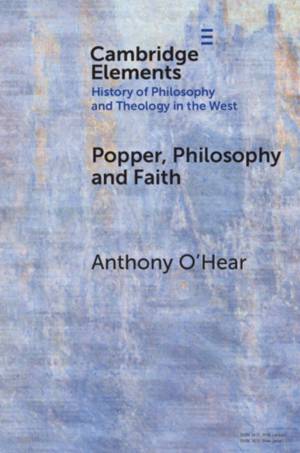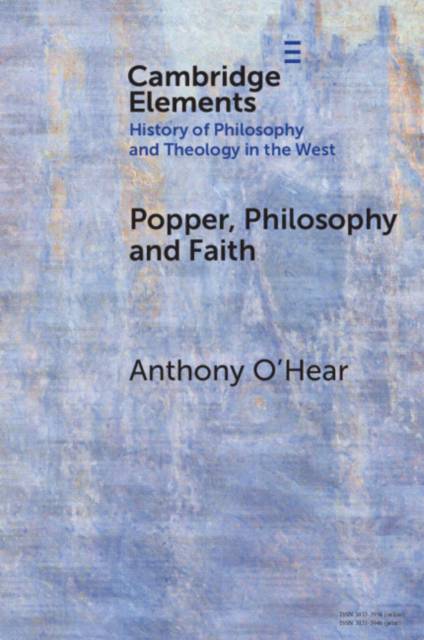
- Afhalen na 1 uur in een winkel met voorraad
- Gratis thuislevering in België vanaf € 30
- Ruim aanbod met 7 miljoen producten
- Afhalen na 1 uur in een winkel met voorraad
- Gratis thuislevering in België vanaf € 30
- Ruim aanbod met 7 miljoen producten
Zoeken
Omschrijving
This Element aims to make good an imbalance in scholarly work on the thought of Karl Popper. Towards the end of his life he developed a dualistic view of the self, and connected to it, a model of reality consisting of three worlds: first the inorganic world; a second level domain of consciousness; and a third world of ideas, institutions and concepts. This third world develops beyond the ideas and understanding of its human inventors. The implications of these later developments has not been fully considered, nor has his idea that his critical rationalism rests on an irrational faith. These are considered against the context of his more famous work on science and the open society. Popper saw his late work in quasi-Platonic terms, and the similarities and differences here are explored. Does Popper's work as a whole tend in an unfulfiled Platonic direction or need a religious foundation?
Specificaties
Betrokkenen
- Auteur(s):
- Uitgeverij:
Inhoud
- Aantal bladzijden:
- 70
- Taal:
- Engels
- Reeks:
Eigenschappen
- Productcode (EAN):
- 9781009626781
- Verschijningsdatum:
- 12/06/2025
- Uitvoering:
- Paperback
- Formaat:
- Trade paperback (VS)
- Afmetingen:
- 152 mm x 229 mm
- Gewicht:
- 108 g

Alleen bij Standaard Boekhandel
+ 63 punten op je klantenkaart van Standaard Boekhandel
Beoordelingen
We publiceren alleen reviews die voldoen aan de voorwaarden voor reviews. Bekijk onze voorwaarden voor reviews.







